Tension and fear of the ‘other’ is very profitable for the rulings circles in the U.S., Russia and Ukraine. Prof. Buzgalin joins Paul Jay on theAnalysis.news.
TRANSCRIPT
Paul Jay
Hi, I’m Paul Jay. Welcome to theAnalysis.news. We’ll be back in a few seconds with Aleksandr Buzgalin for a progressive Russian perspective on what’s going on at the Ukraine/Russian border. So don’t forget about the donation button, the share button, subscribe button, and all the buttons.
So if you look at the Western press, you get anything from President [Joe] Biden saying the Russian invasion of Ukraine is imminent. The former head of the German Navy says actually there’s no such thing imminent. Even the head of the Ukrainian government says, in fact, he doesn’t think an invasion is imminent. But the Canadians, the British, and of course, the Americans are creating as much possible tension as they can. We’ll get into all of this, but what is [Vladimir] Putin doing? What is the agenda? Why are there so many Russian troops on the Ukrainian border if, in fact, there are so many Russian troops on the Ukrainian border?
And now joining us to talk about this from Moscow is Aleksandr Buzgalin. He’s a Professor and Director of the Center of Modern Marxist Studies at Moscow State University. He’s Chief Editor of the journal Alternatives, an academic journal dealing with problems in the political economy. And he’s the Vice President of the World Political Economy Association. Thanks for joining us, Aleksandr.
Aleksandr Buzgalin
Thank you so much. It’s a big honour for me to be with you and to discuss this very important question.
Paul Jay
Thank you. So if, in fact, Putin actually has so many troops on the border and even that seems to be in some dispute, but if, in fact, he does, what is your view on why and what is unfolding here?
Aleksandr Buzgalin
First of all, I’m not a military expert who just came from the border and saw or didn’t see the Russian tanks and so on and so forth. Second, the modern situation is very different from war during the early 20th century and mid 20th century. The United States has invaded many countries without troops on the border. It’s well known. It’s possible to move troops very quickly and to attack by special missiles, and fortunately, unfortunately, Russia has such missiles, the modern special troops.
First of all, it’s not necessary. Second, officially Russia says that troops are two, three, four hundred kilometres away from the border, so far away. They were in the center of Russia all the time. Typically, Russia has their main part of the troops, not main part, but a very big part of the troops on the Western border. This is all tradition. All the Russians came to Russia in the 18th, 19th, 20th centuries from the West, so it’s understandable. Now the Western border of Russia, not only Western, there are a lot of NATO [North Atlantic Treaty Organization] bases, military organizations, troops, and arms of different countries which are not very friendly to Russia. They have a lot of very negative anti-Russia phobic statements from official leaders, including Poland and not only, unfortunately.
So this is reality, but I want to say another aspect that is very important from my point of view. Why did all this tension become so well discussed, well presented everywhere? In Russia, we have talk shows on Central TV for two hours nearly every day. In the West, every newspaper, every post on the internet, everything has this conflict. Why? It was the same between different conflicts. Sometimes conflicts did not happen, but the noise was very strong. Why? Because it’s profitable.
It’s profitable for the main ruling circles of the United States and other countries who are together with the United States. By the way, not all of Europe. It is profitable for patriotic, better to say, statist propaganda in our country. It is profitable for everybody who wants to say the main problem is the foreign threat, especially in Ukraine. It’s not internal contradictions, not inequality, not poverty of masses, not terrible situations in the economic sphere with education and so on and so forth, and I think in the United States, prosperity is not for everybody. The growth of inequality is enormous during this pandemic.
As an economist, I can say there is a permanent growth of billionaires and a decline of the majority of the population in the United States, Russia, and all over the world, with a few exceptions.
So why for them is it important, useful, and profitable? Very simple. First of all, if there is a terrible Russia, we have to create a lot of armaments, and we must be together. We are all friends. Billionaires and poor people, black and white, people of colour, women, men, it doesn’t matter. We are together because there is a terrible Russia. We must unite. In Russia, more or less, it is the same. Look— and this is true basically, in Russia, there is a lot of NATO bases.
When was [Mikhail] Gorbachev in— it was the end of the Soviet Union. When NATO leaders, U.S. leaders, and European leaders said no expansion of NATO to the East. NATO is in the West, Germany, and that’s it. In Belgium but not Poland, not the Czech Republic. It was in Czechoslovakia. Of course not Hungary and so on and so forth. Impossible. Dear Gorbi, we like you. Everything is perfect. No NATO near your borders. What else? Now they say, oh, it was another situation.
In Russia, we have such a problem. I’m a strong man, and I gave my word to do something, but I can take back my word. I’m a strong man. It’s a bad joke. So it’s the same with NATO. We are strong. We have force. We have power. We say yes… yes. We say no… no. Whoever we are against will be beaten. It’s very simple.
Unfortunately, it provokes— also in Russia, they have the same fear that tomorrow will be war. It creates a lot of negative trends in Ukraine where people are afraid to go into the Army and so on. There is one very important aspect; this is prehistory. Of course, Crimea, but we discussed Crimea, and I don’t want to discuss it more. I just want to remind everyone that Crimea was part of the Russian Empire, and it was part of the Soviet Union until the 1960s. Only in the 1960s, for 20 years or a little more, Crimea became part of Ukraine. Inside the Soviet Union and inside the Soviet Union, there was no border. It was like between States in the United States. So it’s like part of the territories in Texas, which are not New Mexico. It’s not very important. Maybe it’s important in the United States, but in the Soviet Union, it was not important.
When the border disappeared, when the Soviet Union disappeared, it was disintegrated. Ukraine took Cremia and took Sevastopol. These are military bases in the Black Sea, which influence all Mediterranean areas. Not simply in Sevastopol because of modern missiles. This was the main base for fleets, airplanes, and all these things for the Russian Empire and the Soviet Union. Then it was together, Russia and Ukraine in Sevastopol.
In 2014 when Ukraine changed the government, the next day, information appeared that Crimea is part of Ukraine. No Russian troops, no Russian people, no Russian control. It must disappear. Ninety percent of the population of Crimea were Russians, and 99% spoke Russian. It was a very artificial Ukrainian power in Cremia. It was the Tatar population, the native population, not too much, but not Ukrainian. Okay, we have Ukrainians in Moscow. We have a hundred, a thousand Ukrainians in Moscow. We have millions of Ukrainians in Russia leaving. They’re immigrants, and they’re looking for jobs. They are coming from Ukraine to Russia, which is the enemy of Ukraine. Ukraine is selling commodities, and billionaires from Ukraine are selling commodities to Russia. I think they may be even buying armaments from Russia; I don’t know. So it’s very strange.
The countries, for 300 years, were very close friends. [Nikolai] Gogol, the famous writer— who is Gogol? Ukrainian guy or Russian guy? He was Ukrainian, but he was writing in Russian, living in St. Petersburg in Russia. It’s the same with the majority of other people and a lot of Russians who were in Ukraine and became heroes for Ukraine, in Ukrainian culture, art, in theatres and cinemas. They have great cinemas in Ukraine and inside the Soviet Union. There were people from Central Asia, from Russia, from Belarus, from Latvia, and Estonia; it was a very integrated country. So all the divisions are very artificial. It’s very important prehistory.
So for us, conflict with Ukraine is something stupid. Even more stupid than conflict between Britain and the United States or between Canada and the United States.
Paul Jay
Well, actually speaking with my Canadian hat on, I can certainly understand why there might be conflict between Canada and the United States, but go on.
Aleksandr Buzgalin
Yes, I don’t know. I’m not a specialist in Canadian and U.S. relations.
Paul Jay
Let me ask you a question.
Aleksandr Buzgalin
Of course, yes.
Paul Jay
So it’s a complicated set of factors here. There’s, as you say, these cultural-historic connections between Russia and Ukraine. There’s the geopolitical contention, mostly Russia versus the United States and its subordinates in Europe. There are the internal contradictions amongst the oligarchy and amongst the people, to some extent, but mostly amongst the oligarchy in Ukraine. There’s the factor you raised, off the top, which I think is one of the most important driving forces, the military-industrial complex of the United States, but also the military-industrial complex [crosstalk 00:12:12]
Aleksandr Buzgalin
And Russia.
Paul Jay
And Russia, Europe, and Ukraine. If I understand it correctly, during the Soviet Union, Ukraine produced 30% of the armaments for the Soviet Union. Ukraine is a major manufacturer. In fact, up until just a few years ago, Ukraine was between the fourth and tenth-largest arms exporter in the world. Recently they went a little down in their arms exports because the domestic demand for arms went so much higher, and of course, the Ukrainians are buying— they get $200 million from Biden for arms. Well, most of that, I assume, goes to American arms manufacturers.
But there also is a fight, is there not, over the rival sections of the Ukrainian oligarchy, one of which is pro-American, the other of which is much more aligned with Russia. The way the pro-Western section of the Ukrainian oligarchy has pushed aside the section of the oligarchy that was more connected with Russia, essentially, quite brutally. I mean, they’ve arrested some of the political leaders of a political party that was more connected with Russia.
So talk a bit about this, the contradictions in the Ukrainian oligarchy and the Russian versus American oligarchy. We don’t talk about the American oligarchy enough, but it’s the same thing.
Aleksandr Buzgalin
Of course, we have big capital, which is in Ukraine and Russia, very specific. It is much more integrated with their State. I mean, inside Russia with the Russian State, and Ukraine with the Ukrainian State. So because of Russia, we have such expression, [foreign language 00:14:09]. So when you take budget money and use the budget money for private purposes, buy capital. Officially it is used for the benefit of the people, but really a big part of this money disappears, where they came from State pocket and go into people’s pockets in between the business, and this business eats a big part of this money, maybe the biggest part of this money. This is the rule for Russian business, Ukrainian business, I think in all post-Soviet countries, and not only.
Paul Jay
The same model in the United States, but go on.
Aleksandr Buzgalin
I just tried to be polite in talking about our country’s, but you know better, United States, partly me too. So that’s why this business is also divided. In Russia, we have, let’s say, a pro-Western business which is interconnected with finance, with different forms of foreign trade, not exactly raw materials, but there are a lot of other spheres of foreign trade. We are buying a lot of equipment; 90% of equipment in Russia is from outside, some from the West, some from China, and a few from other countries.
All these internal conflicts of oligarchs are also part of the background for foreign history, foreign debates; I don’t know, crowd around the Russian Ukrainian war. Why? Because in Russia, we now have the victory of, let’s say, nationalistic or national big business, which is very integrated with the military-industrial complex and has a very contradictory influence on Russian development. I must explain it because Russia looks like a very militarized and aggressive country from the outside. According to some figures, it’s true because we have a big military budget, defence budget officially. We have growth of this budget, and we don’t have growth of budget for education, for health care even during the pandemic situation. So this is true.
But the military-industrial complex in Russia now plays a double role, and it is an important contradiction if you want to understand how Russians see this problem. I don’t say it is objective. I think how Russians see this problem, not even me, but the Russian majority. The military-industrial complex became one of a few branches of the economy where we have development, where we have high tech, where we have a big necessity to use skilled labour, engineers, creative workers, and scientists. We have a rebirth of fundamental and applied science for these purposes. We have a rebirth of preparation of engineers, education of engineers. We have a rebirth of the working class in these fields, and this is skilled workers.
Paul Jay
Aleksandr, I saw a number that as much as 20% of the industrial workforce is in the military-industrial sector. Is that right?
Aleksandr Buzgalin
It’s very difficult. It’s like in the Soviet Union to say what is military-industry complex, which is not in Russia, is a big question mark. So I will not use figures because it is really difficult to say. Sometimes enterprises that are producing civil productions are working for the military-industrial complex and vice-versa. Some military enterprises are producing a lot of consumer goods for the population inside Russia. It’s a paradoxical situation.
But yes, it is a big part, and the biggest part of the labour is either gas, oil, or the military-industrial complex. So that’s why it is a double increase. On the other side, of course, the military-industrial complex in any country is the basis for aggressive policy, is the basis for militarization, is the basis for statism, gross of power, bureaucracy and so on. And only if it is under the control of the society, if it is really for defence and nothing else and so on and so forth. The only situation we can say this is necessary, maybe it’s evil, but it’s a necessary evil, and it is as minimum as possible. In a modern situation, I don’t want to say that the military-industrial complex of Russia is the birth of peace; I’m not sure, honestly.
But the problem is that threat is real, and who knows if it will be aggression against Russia or it will know the aggression against Russia. If we listen to the voices of NATO leaders and some U.S. generals— we have quotations of one of your big generals who said the United States had to go to Syria, had to go to any country, Iraq, Iran, Libya, and it’s our interest to control these countries. So who knows. Is Russia a country where it’s necessary to establish democracy? One day they say Russia needs democracy. Let’s move to Russia.
The same with Ukraine. For Ukraine to have these terrible problems, artificially created problems around war is extremely profitable for business, for State, for saving power because they have very big internal contradictions. In Russia, we have inequality in Ukraine; it’s higher in Russia. We have stagnation of the economy in Ukraine, much bigger stagnation and the same problems. It’s necessary to show that it’s not because Ukrainian economic policy is anti-people. It’s antisocial, not because it is inefficient, not because we are stupid leaders and very aggressive consumers of money, of people. Not because of that, but because Russia is terrible.
In Russia, we can say it’s because the United States is terrible. So, unfortunately, nobody is perfect, as it was said in one American movie. Of course, Russia is not the angel and the United States even more.
Paul Jay
Well, let me just quickly add. Everything you just described is true for the United States. A militarized economy. The infrastructure is crumbling. The education system is crumbling. Health care is terribly underfunded. The Republicans, who are so worried about big government, government spending, and corporate Democrats, they have no problem increasing the military budget to a trillion dollars or more a year. So it just needs to be added.
The other thing is there’s articles and all the American publications now. They give Putin two major objectives in why he’s about to invade Ukraine, which, as I said earlier, I think you mentioned most of the Europeans, even the Ukrainian government, don’t think Russia is about to invade Ukraine. Still, the Americans can’t shut up about it. At any rate, the objectives of Putin are supposed to be essentially three, to undermine and divide NATO. Two, because he hates democracy and doesn’t want a Democratic Ukraine on Russia’s border. Three, he wants a greater Russia. He wants to go back to the historic Russian Empire, and that’s what’s driving him.
So let’s start with the democracy thing. It’s kind of ironic, given that Ukraine is not much of a democracy. At any rate, what do you make of this? Putin hates democracy. That’s what this is all about.
Aleksandr Buzgalin
First of all, it is not so simple about Putin and democracy. First of all, I want to talk about Ukraine. It is a country where a lot of people were arrested, beaten, killed by semi-fascist groups and directly fascist groups, legally and illegally. It was in 2015-2016 and for many months, and it is continuing. If you openly say in Ukraine that you think Russia is not aggressive and Russia is not the enemy, Russia is something good, you will maybe even be killed not by the State, but by, I say in general, right-wing semi-fascist militarized groups, and they’re still acting. They still have faces to matches in Kyiv, in the center openly. They have anti-semitic, direct slogans. We have commerce colleagues in Ukraine. So it’s not a good atmosphere at all.
We have immigrants from Ukraine; Left Democratic internationalists had to leave the country because they were afraid of being killed. One of my friends is living, now teaching in Russia, and he’s a Professor Young, Ph.D., talented person, a historian. He was living in a [foreign language 00:25:03] south of Ukraine, a very big city, and he was threatened to be killed many times. This is only one of my personal examples, and there are a lot of other examples. So it’s a falsification of democracy about democracy in Russia. Of course, we have a concentration of power in the hands of the President and administration, but generally, we have a concentration of power in the hands of bureaucrats and top oligarchs who are integrated like everywhere.
A few examples I was told when I had another interview with U.S. journalists, and journalists asked me if I could say openly that Putin is not a good guy? It was a much more dirty expression, openly on your central TV. I said, no, I cannot. But it’s true. Nearly every week, there is 30 minutes of open-air in one of the central Russian TV stations where I can say that the social and economic policy of the State in Russia and power in Russia has negative interest on the interests of people and a lot of critiques.
Paul Jay
Can I just quickly just add a note? The Left, that’s approximate in your sphere, of what we call Left, does not get on mainstream television in the United States at all. Anyway, continued.
Aleksandr Buzgalin
That was my answer. I said, can anybody come to the first channel of U.S. TV and say that Putin is a good friend, a very peaceful man who brings peace everywhere? He was smiling and keeping silent. Unfortunately, we don’t have real democracy in the United States. We don’t have real democracy in Russia. In Russia, we have much more paternalistic traditions. This is also important and very strong semi-feudal relations, especially in regions of so-called clans in the North Caucasus, South of Russia, in some Muslim regions of Russia, but not only. So we have a lot of negative features in our country, but it’s very often not formal democracy.
We have the Communist Party of the Russian Federation in the Parliament. Of course, they’re not real communists, but they are very Left social Democrats in economic and social policies. They’re Russian nationalists, Stalinists. Economic and social requirements are more Left than the Left part. In Germany, they require free-of-charge education for everybody in universities, not only in schools. Completely free of charge, good quality health care, very high progressive income tax, nationalization of the oil industry, gas industry, and so on. And all rent from raw materials must go for people’s development, people’s control on the enterprises. So I don’t know who in the United States Parliament can proclaim such requirements and have 15% of the seats.
Paul Jay
Nobody. Bernie Sanders and a few come a little closer. They may agree with everything you just said, but they can’t actually realistically propose most of what you just described.
Aleksandr Buzgalin
Of course, we are criticizing the absence of democracy in our country. It’s from the time when the Soviet Union collapsed. [Boris] Yeltsin started very strong oppression of Left trends. By the way, even the real Democrats disappeared from government and from Parliament two years after his victory. In 1993, it was tense in Moscow who were shooting to the Parliament. It was very Democratic.
Paul Jay
Now in past interviews, you’ve talked about how the West is always so concerned about some politicians that get suppressed by Putin, who are essentially pro-West, neoliberal politicians, but they don’t talk about the Left in Russia. I shouldn’t say so. The Left gets suppressed more, and the West never talks about that.
Aleksandr Buzgalin
True, and we had Sergei Udaltsov, who is very active. I can say he is a really Democratic internationalist leader of Left organizations, Communist organizations, Left-front. He participated in protests in Bolotnaya Square. By the way, Liberals put these young Communists in the front. Police attacked all these guys, and they’re not absolutely weak. Maybe one of them also made a hit against a policeman, and Sergei and his friends received four or five years of prison. Nothing in the West.
Stanislav Markelov, I say this name. It’s important since Stanislav Markelov, our close friend, he was a protector of human rights and a defender of trade unions, of immigrants. He was killed in the center of Moscow. It was said that it was a strange, crazy guy, but really it was a political killing. Nearly nothing in the West about [Boris] Nemtsov, who had a lot of money. I don’t know who or why they killed him, by the way. Noises permanent, and no stop until the modern minute many years came, but about Stanislav Markelov nothing. So it’s a very strange model of defence of democracy, foreign. It’s very important for me.
Paul Jay
Yeah, of course. So it’s not to minimize. I mean, they use the word authoritarian with Putin and the Russian State. You’re not minimizing that there is authoritarianism.
Aleksandr Buzgalin
Of course, it is. There are a lot of authoritarian trends in politics and so on. It’s not a picture that is created by Western media.
Paul Jay
Right. Okay, let’s get back to Ukraine. So there’s the drive of the military-industrial complex on all sides. I have to say, Americans are certainly more provocative. They’re certainly profiting the most out of all this. But as you say, there’s also a Russian military-industrial complex. Let me just say because I know I’m going to get viewers writing in. I don’t, and I’m sure you don’t disagree that the demand to stop the Eastern expansion of NATO is a justified demand. Ukraine shouldn’t be in NATO. There should be no nuclear weapons in any of these neighbouring States. Going even further, I would say there shouldn’t be any bloody nuclear weapons in Europe, period. In fact, anywhere. So let’s put that aside because we all agree on that.
There actually is a fight over this division amongst the oligarchy in Ukraine between a pro-West and a pro-Russian. And the way the pro-Russian section of the oligarchy has been suppressed really by the Americans. The change of government, I guess it was in 2014, was essentially a coup that the Americans were very involved with. So it’s part of what’s going on now. Putin is pressuring Ukraine in order to try to either— both the Donbas region, the section of Eastern Ukraine that’s mostly Russian— to force Ukraine to live up to the Minsk Agreement that will allow more autonomy. Are they trying to strengthen the pro-Russian section of the Ukrainian oligarchy? And there really is a fight. Ukrainian is quite a prize if I understand it correctly. It has been quite an industrial powerhouse.
Aleksandr Buzgalin
It’s true, and it is a very complex question. I’m sorry, I cannot be very brief.
Paul Jay
You don’t need to be brief.
Aleksandr Buzgalin
So first of all, introduction, not the answer but introduction. So what would happen if Russia decided to protect Mexico from U.S. aggression and create military bases along the Mexico-U.S. borders, create Russian bases along the U.S. Mexico border in Mexico?
Paul Jay
Well, we know the answer. It’s called the Cuban Missile Crisis.
Aleksandr Buzgalin
Yes, not the same. But when we say, Russians say the same, so guys, look, why can’t we protect a good country against your aggression and your aggressive country, when you can protect a country against Russia, which did not attack last year with weapons on other countries? So that’s a big question mark.
Let’s now forget about the introduction content. I think that the Russian government, not Russia, but Russia definitely doesn’t want to have war with Ukraine. It’s in the soul. And for our people to go and fight against Ukrainians— it’s not even against Ukrainians. It’s against, I don’t know, 50% Russian-speaking people, 50% Ukrainian-speaking people. The Army in Ukraine, not generals, but soldiers, officers, and children speak in Russian. So it will be a very crazy war, and in the Russian Army, there are Ukrainian people. So it will be very crazy. So I cannot imagine even this. It’s about Russian people, Russian officials, the State government and so on.
I think all these debates can be used for increasing bureaucratic power for our State, but to start a real war, it will be a catastrophe for modern ruling circles. They will lose, within the same day, support inside the country. Even if they create very good prerequisites, explain everything, show all facts and pictures and so on. I don’t think that any war in the territory of Ukraine will be supported by the Russian people. It’s self-killing suicide for officials, and they’re not stupid. I’m very critical of top-Russian people.
By the way, I don’t want to talk about Putin. It’s a very bad idea when everything is a cult of personality but a cult created in the West. So it’s not Putin. It is a system of power of bureaucrats and oligarchs. Putin is only a symbol, nothing else. So for this elitist to do self-killing, suicide. The Military-industrial complex is producing things that are necessary not for such small local wars. They are producing very expensive special equipment that I don’t know is necessary to show that Russia is very strong and dangerous; don’t attack us. So this is the role of these special new missiles, and we don’t have enough of these missiles to take any country, by the way. It’s just a symbol that we can create something very dangerous.
Paul Jay
So we’re going to finish part one now, and we’re going to do part two of this interview, so thanks for joining me on theAnalysis.news. Don’t forget to donate, subscribe, share and join us for part two of Aleksandr Buzgalin, which we will be releasing very soon.
END
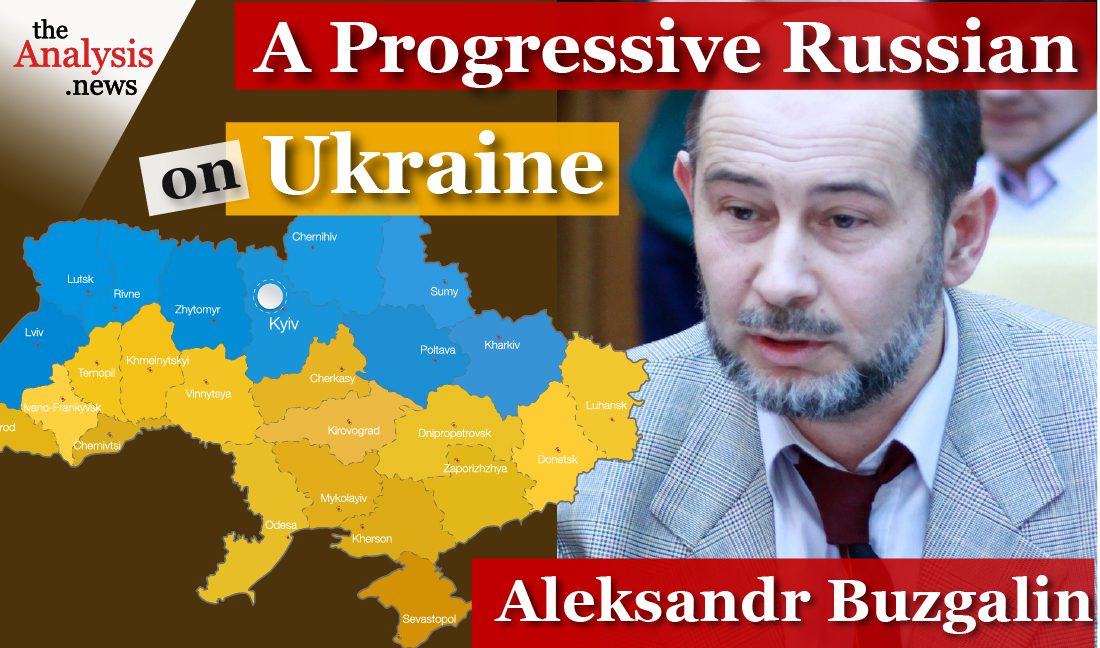
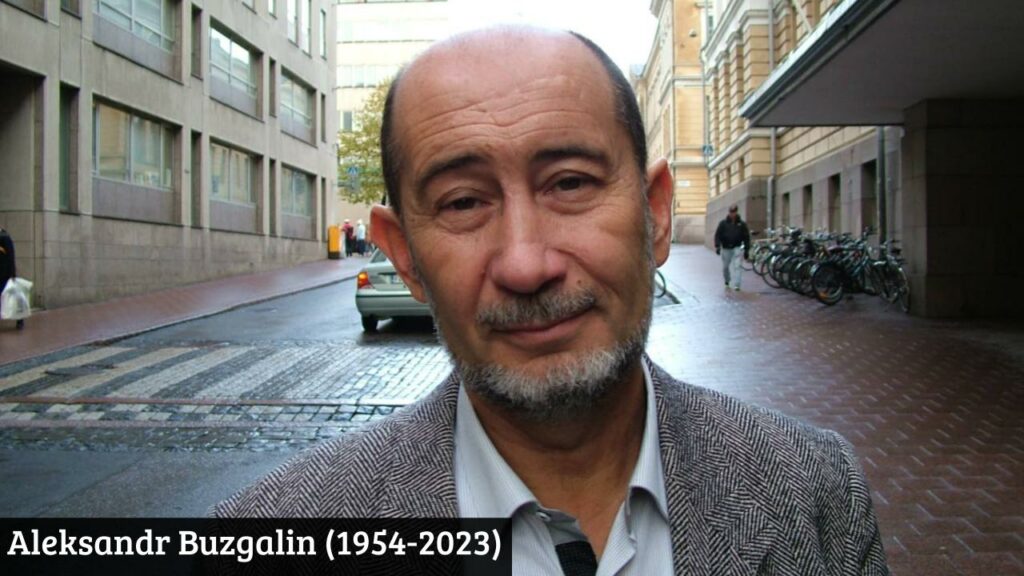

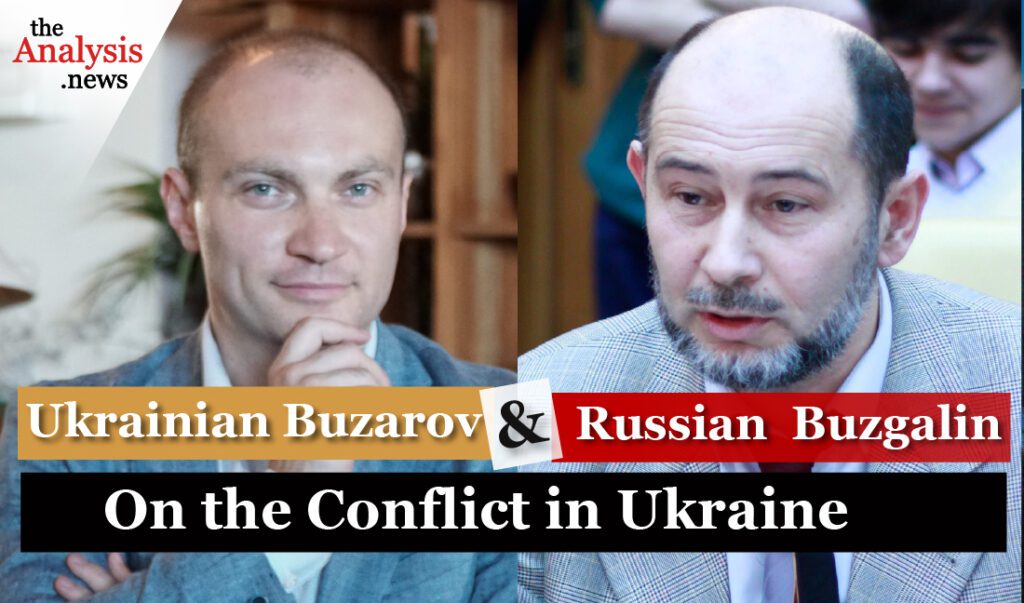
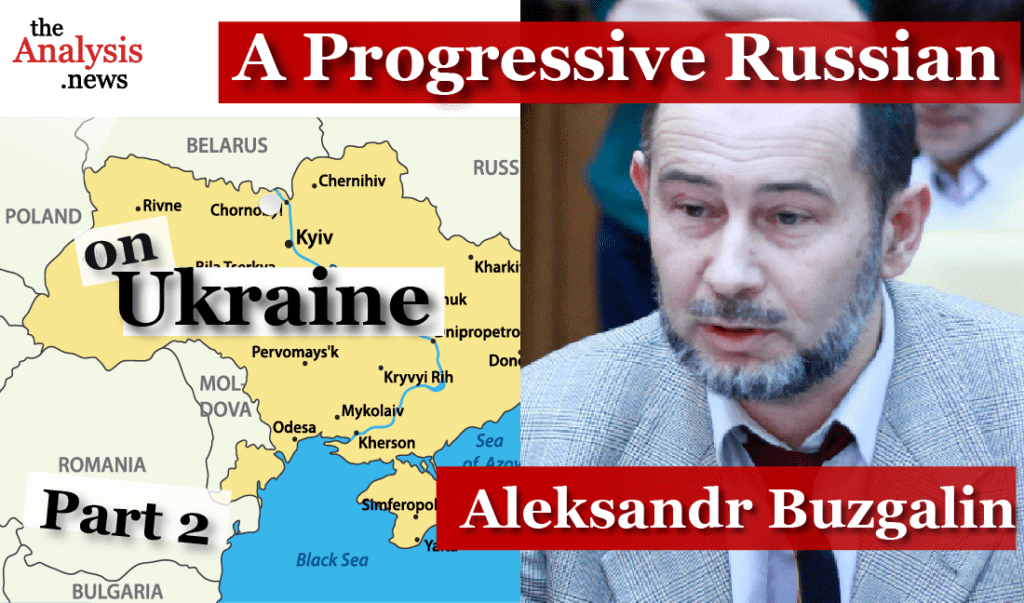
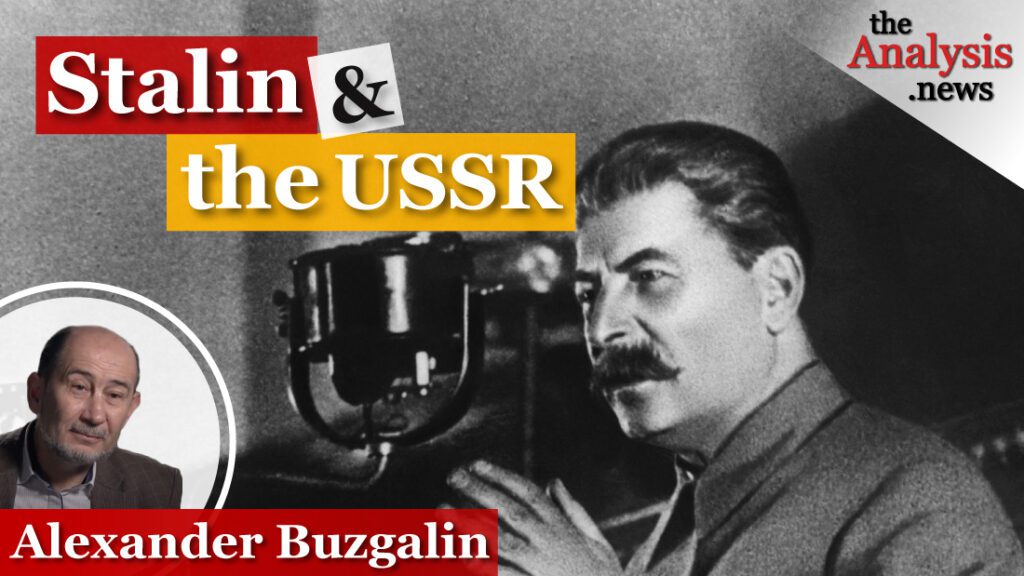
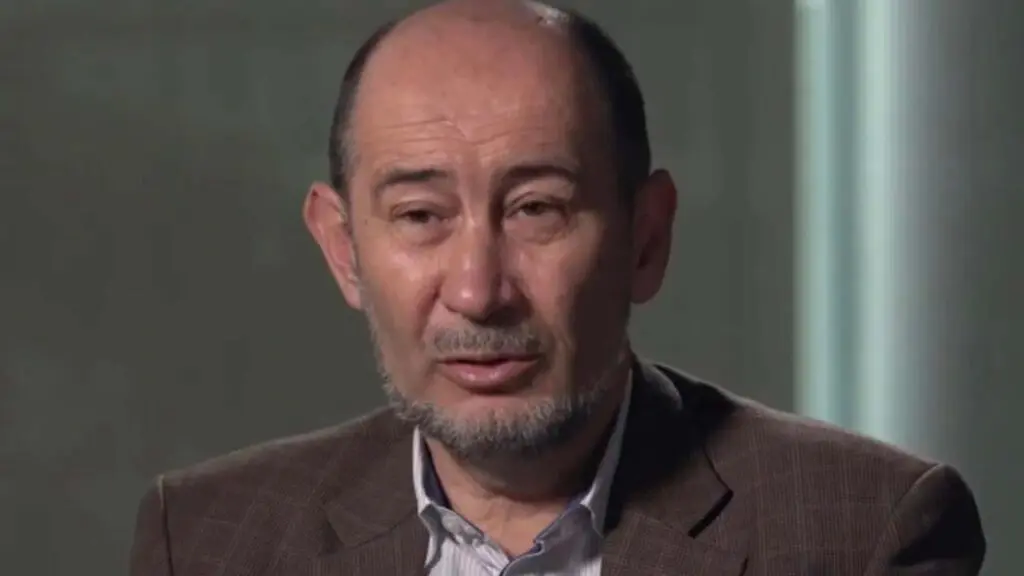

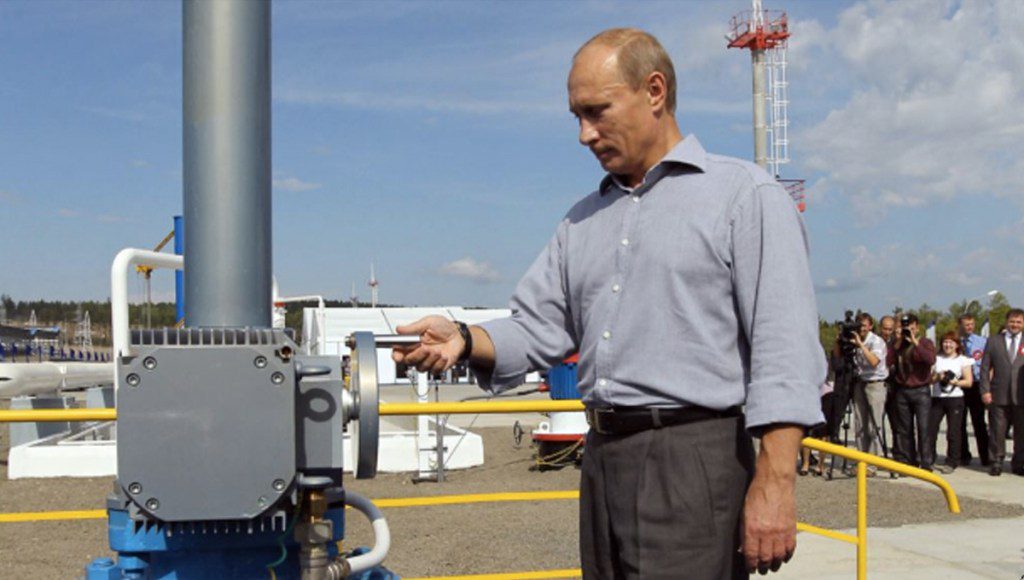
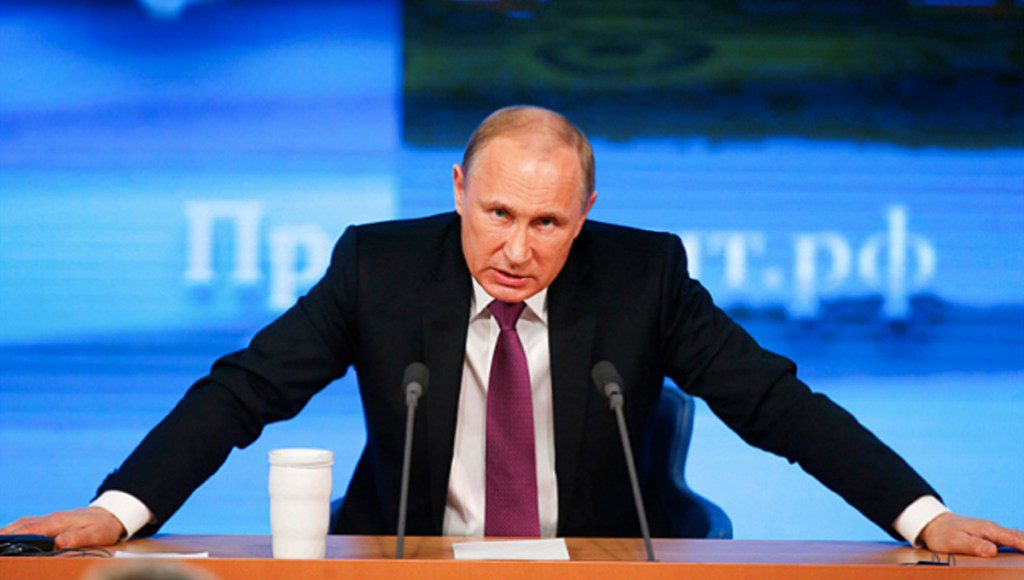

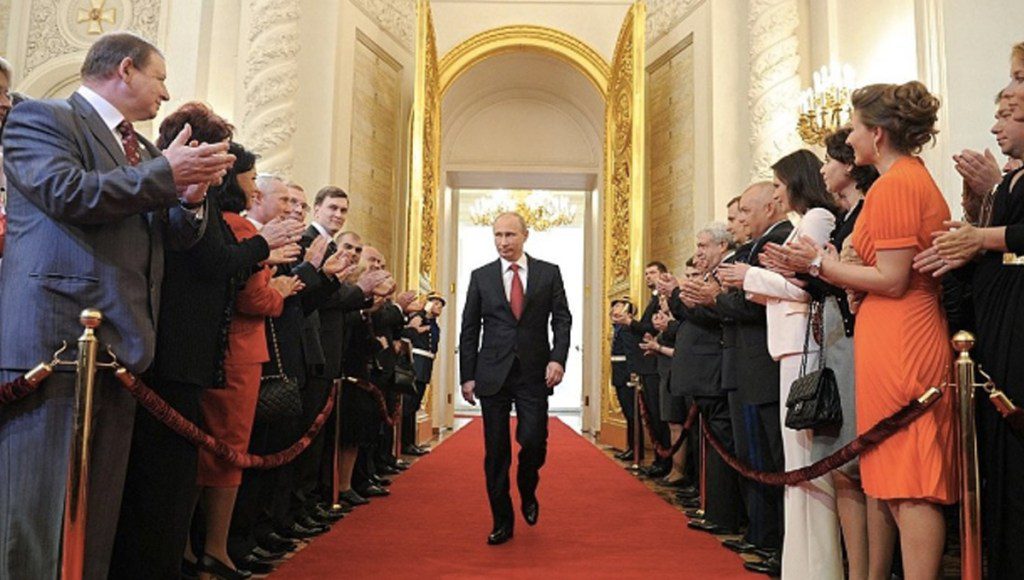
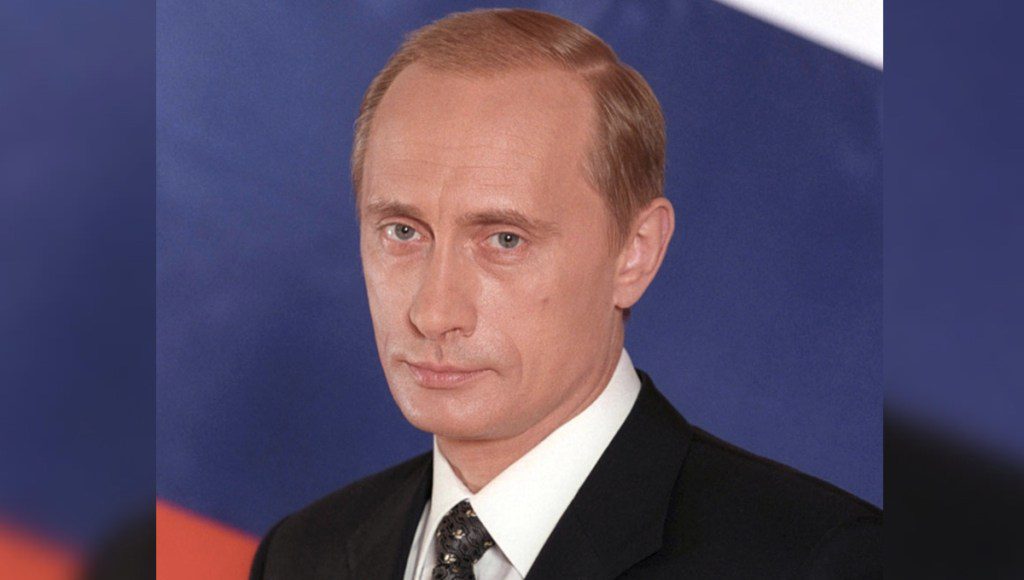
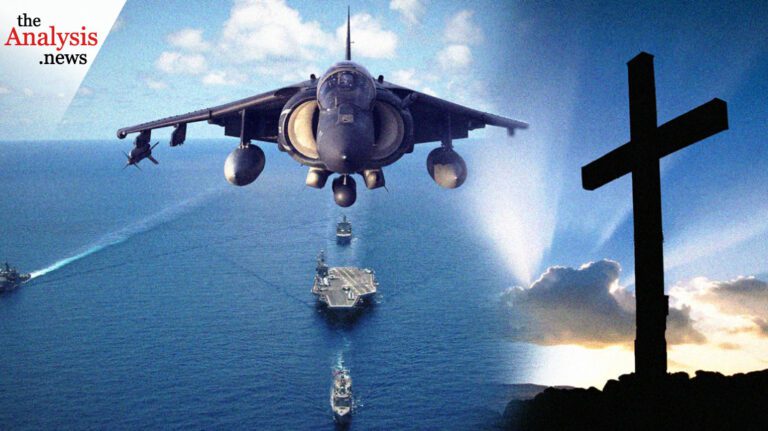
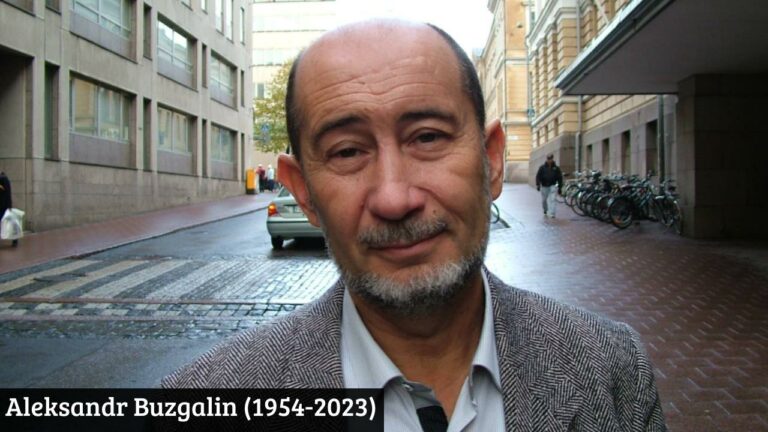
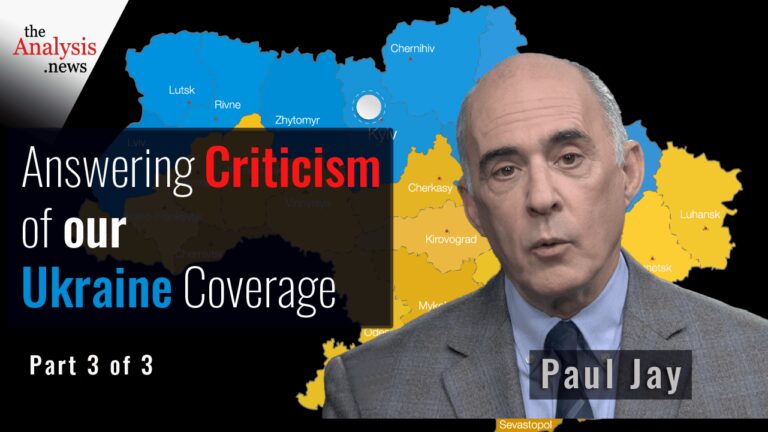
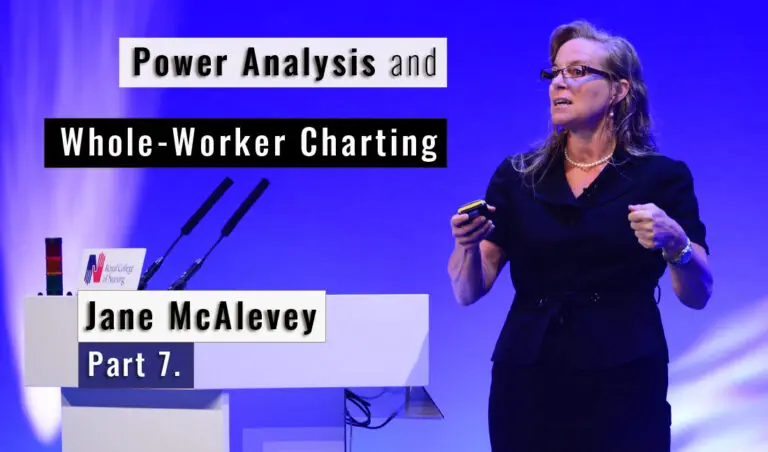
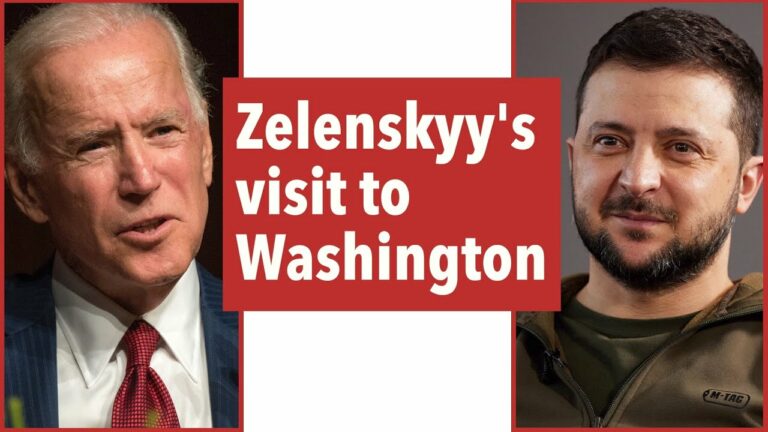
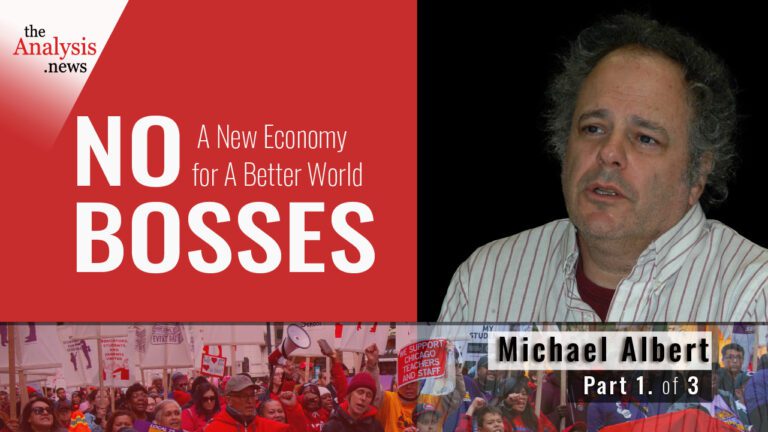
Russia has already circulated a list of demands.
A guarantee Ukraine doesn’t join NATO
Removal of NATO missiles and miltary deployments from former Warsaw Pact NATO members in Eastern Europe
A ban on NATO missiles within striking distance of Russia
Autonomy for Eastern Ukraine
Note the fairly obvious focus on Russian security. That says a lot about what is driving events.
The EU, US and NATO haven’t circulated any lists, and would presumably be more than comfortable with the status quo of doing as they please, whenever they felt like it. As they have done for about thirty years since the end of the USSR. They certainly don’t want anything written down with a Russia feeling aggrieved by what wasn’t written down at the end of the USSR, and like much of the managerial and political elite the world over seems to view writing things down as being somehow inherently socialist. But they are likely to have to do just that. Getting them to write down anything would almost be seen as a win by a lot of Russians.
The Western world needs a deal to preserve Ukraine, as a sovereign state able to determine its own fate (as opposed to being a teat for Oligarchs), and to turn the prospect of any Russian military threat off, for Ukraine and elsewhere in Eastern Europe. Russia needs a deal to remove the risk of Ukraine, and Eastern Europe, being the base for missiles aimed at it. More than that, it needs to remove the sense that NATO, and NATO expansion, is about confronting Russia. Because if NATO is about confronting Russia, then the only logical position Russia can adopt is to prepare to confront NATO. And if Russia does need to confront NATO then Ukraine would be a logical place to start – there are a lot of Russians already there, the administration that is there isn’t all that credible with Ukrainians, and it is the closest threat to Russia.
Putin plays for history as Eurasia stamps the flames
https://www.macrobusiness.com.au/2022/01/putin-plays-for-history-as-eurasia-stamps-the-flames/
How can Mr Buzgalin tell us that Russia, like the US, is raising the prospect in Russia of war as the US is doing in Europe and in the US? Mr Putin, and Mr Lavrov, have repeatedly told the world that they are not planning to go to war with Ukraine. In the US, the President, Mr Biden, almost daily speaks with threats and belligerence towards both Russia and China. Indeed, the areas of concern are bordered with Russia and a part of China! The US has no security interest at stake in either Ukraine or Taiwan, both thousands of miles and oceans away from the US. The concerns of Russia are well founded in Russian security and history. The concerns of the US are only imperial concerns. The US has no security concerns, except those it provokes in the third world by US behavior.